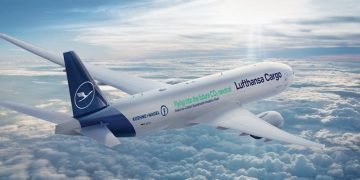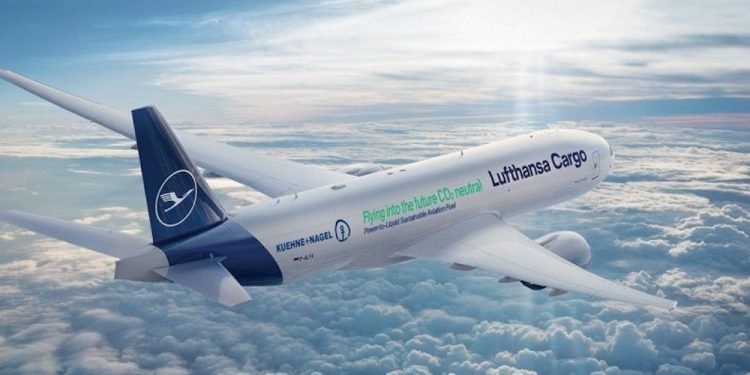A Green Partnership
Lufthansa Cargo and A.P. Moller – Maersk have joined forces to advance the decarbonization of airfreight through the use of Sustainable Aviation Fuel (SAF). The collaboration, set to span the end of 2024, aims to reduce CO₂ emissions by at least 1,200 metric tons.
Sustainable Aviation Fuel: The Key Driver
- Biogenic Sources: The SAF is produced from biogenic residues, such as used cooking oil, using the Hydroprocessed Esters & Fatty Acids (HEFA) method. This process cuts the fuel’s lifecycle CO₂ footprint by approximately 80% compared to traditional fossil kerosene.
- Drop-In Technology: SAF can be seamlessly integrated into existing infrastructure, requiring no modifications to aircraft or fueling systems.
Leadership Remarks
- Morten Bo Christiansen, Maersk’s Head of Energy Transition:
“Airfreight decarbonization is one of the most challenging tasks in global logistics. This partnership with Lufthansa Cargo is a significant step forward.” - Ashwin Bhat, CEO of Lufthansa Cargo:
“SAF is crucial for sustainable aviation, and this agreement reflects our joint commitment to the energy transition.”
Sustainability Goals
- Lufthansa Group: Aims to halve net CO₂ emissions by 2030 and achieve carbon neutrality by 2050.
- Maersk: Targets net-zero greenhouse gas emissions across its operations by 2040.
A Step Toward Greener Logistics
This partnership highlights the critical role of SAF in reducing the aviation industry’s environmental impact. By aligning their efforts, Lufthansa Cargo and Maersk are paving the way for more sustainable airfreight solutions and demonstrating their commitment to a greener future.























